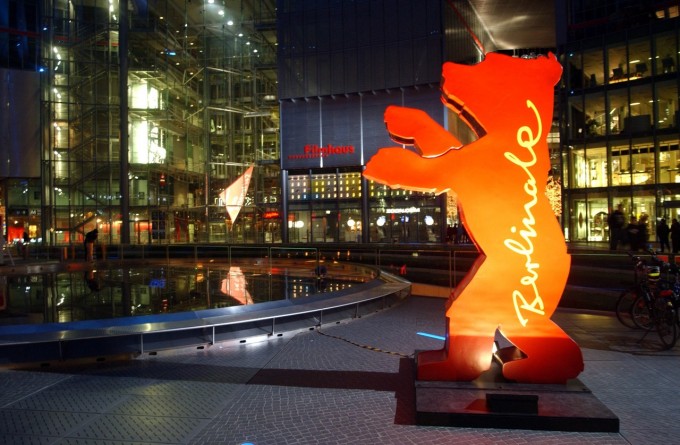
As this year’s NECS Conference in Paris is coming closer, here is a handy list of the panels and workshops sponsored by the Film Festival Research workgroup. Listed below is also our workgroup meeting, taking place Thursday evening. Please swing by!
B13: FILM AUDIENCES & FESTIVAL EXPERIENCE I: SENSES, BODY & AFFECT
Thursday, June 29, 11.30-13.15, Room D39
Chair: Marijke De Valck, Utrecht University
- Dorota Ostrowska, Birkbeck College, London: Embodied Celluloid Spectres: Photographing Stars at Cannes Film Festival
- Peter Virginas, Babes-Bolyai University / Romanian Institute for Research on National Minorities: Rhythms on the Festival Screen
- Lin Che, Chinese Academy of Social Sciences, Beijing: The Film Carnival Unit and Carnivalesque Experience in Beijing International Film Festival
- Lesley-Ann Dickson, Queen Margaret University: Space-Text-Audience: Festivalisation Practices and Shifting Spectatorship at Glasgow Film Festival
C13: FILM AUDIENCES & FESTIVAL EXPERIENCE II: RITUALS, POLITICS & CINEPHILIA
Thursday, June 29, 13.30-15.15, Room D39
Chair: Lin Che, Chinese Academy of Social Sciences, Beijing
- Sonia M. Tascón, Western Sydney University: The Human Rights Film Festival Spectator: Community, Phenomenology, and Social Change
- Patricia Caillé, Université de Strasbourg: A Powerful and Ritualized Storytelling: FIFAK, or the Mise-En-Scène of the Political Resistance in Tunisia
- Marijke de Valck, Utrecht University: Cinephiles in the Making? IFFR’s Light Users and Incidental Visitors
Respondent: Dina Iordanova, University of St. Andrews
D13: FILM AUDIENCE & FESTIVAL EXPERIENCE III: REFRAMING HISTORICAL EVENTS
Thursday, June 29, 15.30-17.15, Room D39
Chair: Patricia Caillé, Université de Strasbourg
- Carlos Daniel and Garcia Rivas, In the Same Shot: Surveillance at the Mar del Plata International Film Festival in 1959
- Elena Razlogova, Concordia University: “They Mob the Pix”: Soviet Fans Assail Foreign Senses at Moscow and Tashkent Film Festivals
- Tanja Krainhöfer and Thomas Wiedemann, Filmfestival Studien.de: Do Movies and Stories Really Have No Boundaries? Examining the Diversity of the Berlin International Film Festival (1980–2016)
WORKGROUP MEETING Film Festival Research
Thursday, June 29, 17.15-18.00, Université Sorbonne Nouvelle – Paris 3, D Building
F11: FILM FESTIVALS AND HISTORY/IES: ARCHIVES, MEMORY, AND TRACES
Friday, June 30, 11.00-12.45, Room D35
Chair: David Archibald, University of Glasgow
- Alexandra Colta, University of Glasgow: Historicising the Festival and the Self
- María Paz Peiran, Universidad de Chile: Mapping Histories and Archiving Ephemeral Landscapes: Challenges and Strategies Researching Film Festivals
- Dunja Jelenkovic, Université Versailles Saint-Quentin-en-Yvelines: Film Festival Histories: From Archives to Programs, and Back
- Katharina Kamleitner, University of Glasgow: The Epistemological and Methodological Challenges of Researching Women’s Film Festivals
F13: RESONANCE, MEMORY AND SOLIDARITY: QUEER FILM FESTIVALS AND AUDIENCE ENGAGEMENT
Friday, June 30, 11.00-12.45, Room D39
Chair: Saige Walton, University of South Australia
- Stuart Richards, University of Melbourne: Queer Outwardly Australian Films and the Film Festival Circuit
- Antoine Damiens, Concordia University: Visualising Queerness: LGBT Festivals as Archives and Cultural Memory
- Clinton Glenn, McGill University: “We Are Not Errors”: Documentary Film and LGBT Activist Narratives in Russia
Respondent: Skadi Loist, University of Rostock
G2: THE USES OF FILM FESTIVALS
Friday, June 30, 13.00-14.45, Room D3
Chair: Pierre Barrette, Université du Québec à Montréal
- Frédéric Gimello-Mesplomb, Université d’Avignon: Examining the Heritagization Process of Film Festivals as a Method of Approach
- Pierre Barrette, Université du Québec à Montréal: Mapping the Current Offer of Audiovisual Festivals and Their Audiences in Montreal: Re-Thinking the Movie-Going Experience
- Jean-Marc Leveratto, Université de Lorraine: Cinema Festivals and Ethnicity
- Olivier Moeschler, Université de Lausanne: Reconstructing the Body, Augmenting the Senses. Integrating Film Festivals into Swiss Cultural Statistics
J12: INTERNATIONAL FESTIVAL OF AUDIOVISUAL PROGRAMS: THE CURRENT TRANSFORMATIONS OF SCREENS AND THE AUDIENCES
Saturday, July 1, 13.00-14.45, Room D37
Chair: Frédéric Gimello-Mesplomb, Université d’Avignon
- Kira Kitsopanidou, Université Sorbonne Nouvelle – Paris 3: Television and New Media Festivals and the Attention Economy
- Mariana Medeiros Seixas, Université d’Avignon: The Fashion Synesthesia : Spectatorship Experience and the Fashion Film Festivals
- Olivier Thevenin, Université Sorbonne Nouvelle – Paris 3: The Paris Virtual Film Festival and Its Relation to Human Sensory Experience
- Christophe Cariou, Université Sorbonne Nouvelle – Paris 3: The Place of the Festival for Crowdfunded Films and Documentaries
K6: TRACES: FILM FESTIVALS AND HISTORY (Workshop)
Saturday, July 1, 15.00-16.45, Room D27
Chair: Dorota Ostrowska, Birkbeck College, University of London
Participants:
- Philippe Meers, University of Antwerp
- Dorota Ostrowska, Birkbeck College, University of London
- Malte Hagener, Philipps-Universität Marburg
- Dina Iordanova, University of St Andrews
- Caroline Moine, Université de Versailles
- Elena Razlogova, Concordia University
- Aida Vallejo, University of the Basque Country
In addition there are a few panels which also feature individual papers related to film festivals:
A4: Live and Experiential Cinema: Sensorial Excess in Immersive and Participative Film Spectatorship
Thursday, June 29, 9.30-11.15, Room D39
Chair: Lesley-Ann Dickson, Queen Margaret University
- Rosana Vivar, University of Granada Spain: “Nowadays Is Not Only the Girlfriends That Come”: Exploring Gender Roles at San Sebastian Horror and Fantasy Film Festival
- Sarah Atkinson, King’s College London: An Electric Shock to The Tongue – Fusing Cinema, Theatre, and Sensorial Augmentation
- Helen W. Kennedy, University of Brighton: Funfear Attractions: the Playful Affects of Carefully Managed Terror in Immersive 28 Days Later Live Experiences
- Brendon Wocke, University of Perpignan: Eating With Your Eyes: Edible Cinema and Participatory Synaesthesia
E7: Between Documentary and Experimental Realms: Avant-Doc, Past and Present
Friday, June 30, 9.00-10.45, Room D29
Co-sponsored by the Workgroups “Documentary Film” and “Cinema & Contemporary Visual Arts”
- Chair: María Paz Peirano, Instituto de la Comunicación y la Imagen, Universidad de Chile
- Greg de Cuir Jr, Independent Researcher/Curator, Belgrade: Circles, Lines, and Documentary Designs: Tomislav Gotovac’s Belgrade Trilogy
- Juliana Froehlich, University of Antwerp/CAPES – Ministry of Education of Brazil (UA/CAPES): The Sensorial Reality abstraction and the Experimental Practice in A Margem | The Margin (1967), Ozualdo Candeias
- Chris Cagle, Temple University: Structural Documentary on the Festival Circuit
- Aida Vallejo, University of the Basque Country UPV/EHU: From the Festival to the Museum. Expanded Formats in Documentary Film.
H14: Queer Sensibilities
Saturday, July 1, 9.00-10.45, Room D32
Chair: tba
- Fanni Feldmann, University of Debrecen: See With Your Tongue: Taste as an Alternative Gaze in Abdellatif Kechiche’s Blue is the Warmest Color (2013)
- Theresa Heath, King’s College, London: Queer Film Festivals and New Sexual Geographies: The Mobilization of the Queer Body as a Tool of Space Reclamation
- Jules O’Dwyer, University of Cambridge: Ekphrasis and the Queer Sensibilities of French Experimental Cinema
- Ger Zielinski, Ryerson University: Queer Scenes in Transmedial Adaptations from Paris to Vancouver to Toronto
L2: Touching, Performing, Sharing, Curating: A Compilation of Cinematic Gestures
Saturday, July 1, 17.00-18.45, Room D3
Sponsored by the Workgroup “Cinema & Contemporary Visual Arts”
Chair: Kevin B. Lee, Art Institute of Chicago
- Julian Ross, University of Westminster: Artist Moving Image in the Age of Swipe and Scroll
- Miriam De Rosa, Coventry University: On Gesturality: Cinematic Images En Train De Se Faire.
- Thomas Pringle, Brown University: Machine Intimacy: Habits of Sharing and the Mediation of Climate at Scale
- David Richler, Carlton University: The Unifying Discourse of “World Cinema” at International Film Festivals and the Curatorial Gesture of Audiovisual Criticism
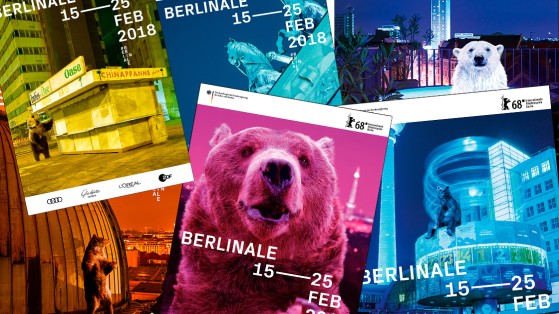

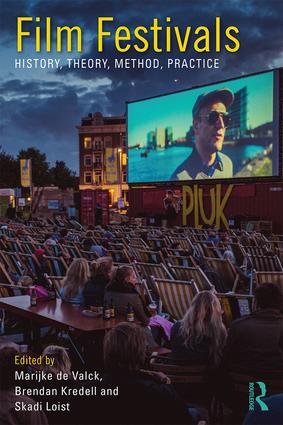
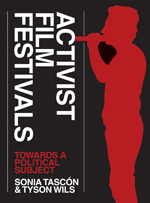
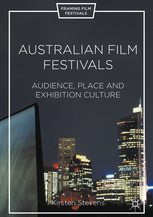
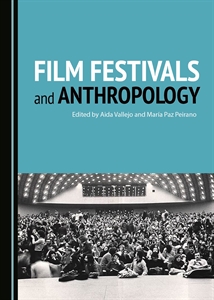 After a long overdue overhaul, we are proud to announce that the Film Festival Research bibliography is again up to date and includes a couple hundred new entries in all sections of the annotated bibliography. Included are several new books and anthologies devoted to film festivals, listing also their individual contributions in the appropriate sections, as well as numerous articles, book chapters and research studies that have come out in the last two years.
After a long overdue overhaul, we are proud to announce that the Film Festival Research bibliography is again up to date and includes a couple hundred new entries in all sections of the annotated bibliography. Included are several new books and anthologies devoted to film festivals, listing also their individual contributions in the appropriate sections, as well as numerous articles, book chapters and research studies that have come out in the last two years.
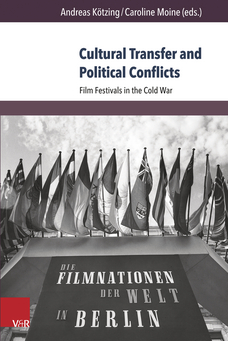
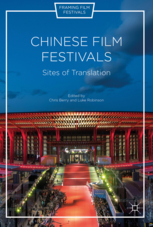 ake sure to browse the new bibliography. You can either follow the links in the
ake sure to browse the new bibliography. You can either follow the links in the 


